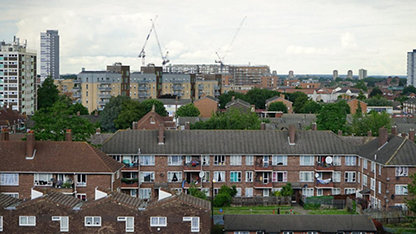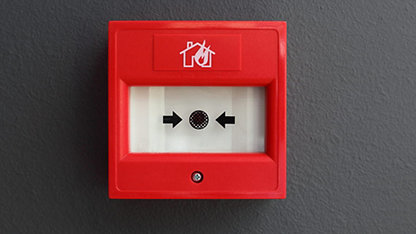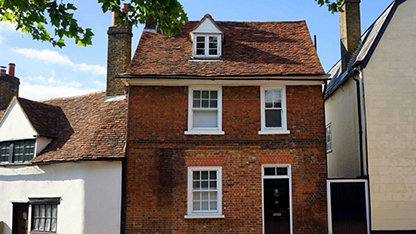Yesterday the Independent Standards and Regulation Board of RICS pinned its colours to the mast in the public interest with its guidance to valuers on cladding. This comes as property professionals and industry unanimously supported the retention of current measures to protect future buyers of property in blocks with cladding.
This step will protect both the public and the stability of the property market, in light of building safety concerns*, and in light of the anticipated withdrawal of the 2020 Consolidated Advice Note.
The Chair of the Board, Dame Janet Paraskeva said:
“Our role within RICS is to safeguard the public interest and the Board decided that, to do this, guidance needs to stay in place at this time. This is so that purchasers do not risk finding themselves trapped in flats of any height because potentially crippling costs are ignored and passed unwittingly on to them, which so many current owners have discovered too late.
In taking this position the Board has heard the views of the lenders, valuers and conveyancers and is clear that RICS must not let this critical issue be swept under the carpet because the correct inspections have not taken place.”
The review of the guidance took place following the publication of a statement issued by Government in July 2021, calling for EWS1 checks to be scrapped in buildings under 18 m. It consulted with lenders, valuers and conveyancers to assess the need for change in its guidance to valuers.
RICS acts in the public interest and is committed to supporting all parties in tackling this issue head on. Going forward, RICS will continue to support a risk-based proportionate response. RICS deeply sympathises with leaseholders who find themselves trapped, through no fault of their own, however the problem must not risk simply being moved from one unsuspecting purchaser to another.
While RICS and industry work to support the property market, it strongly urges Government to find a clear strategy for remediation as well as a funding solution with money upfront for leaseholders. With an estimated 77,500 medium rise residential blocks in England between 11 and 18m,** and the total cost of remediating fire safety defects in buildings estimated at £15bn, RICS is calling for the new Secretary of State to be bold when setting out a clear strategy for remediation and to provide a substantial funding solution for all buildings affected by dangerous cladding. This will go some way to fixing successive failures from previous Governments that have come to light in the Grenfell inquiry this week.
The headline findings of the review were:
- The current approach to requesting EWS1 is considered proportionate in light of the known and evidenced safety risks. Based on current estimates from one of the UK’s largest valuation companies, EWS1 forms are being requested on less than 6% of multi-storey multi-occupancy properties***.
- The process is working as a means to identify issues and ensure accurate valuations to protect purchasers.
- Lenders and their representative bodies (UK Finance and the Building Societies Association) support a proportionate approach and most believe the EWS1 remains the only means to maintain property lending at this time
- The consistency that the current guidance provides purchasers is strongly supported by leading UK conveyancing bodies.
The guidance will be kept under review, including if further measures are announced to help ease the terrible impacts on leaseholders from cladding.
-ENDS-
Notes for editors:
** Data obtained from Building Safety Programme: estimates of EWS1 requirements on residential buildings in England - GOV.UK (www.gov.uk)
*** Data obtained during the period of March 2021 to October 2021.
About EWS1 and valuation
EWS1 is a process established to help keep the property market moving in unprecedented circumstances. It was introduced by lenders and valuers in December 2019 to solve the then common occurrence of flats being given a £Zero valuation. brought about by concerns over dangers from cladding and other fire safety defects. Valuers have a duty to report responsibly, and accurately to protect people buying property – they cannot ignore known defects that affect value.
Professionals carrying out mortgage valuations on blocks of flats have to alert the lender when they cannot be certain of a property’s value due to the potential remedial work to fix cladding. Further investigations are then reported through the EWS1 form. The RICS Guidance Note for valuers on buildings with cladding, launched in March 2021, helps valuers decide if the form is necessary based on what they can see in a normal mortgage valuation inspection.
Due to the shortage of fire assessors RICS are working with Government to deliver training for up to 2000 further external wall assessors to complete. It is also working with Government on its commitment to ensure professional indemnity insurance is in place for assessors.
About RICS
We are RICS. Everything we do is designed to effect positive change in the built and natural environments. Through our respected global standards, leading professional progression and our trusted data and insight, we promote and enforce the highest professional standards in the development and management of land, real estate, construction and infrastructure.
Our work with others provides a foundation for confident markets, pioneers better places to live and work and is a force for positive social impact.












